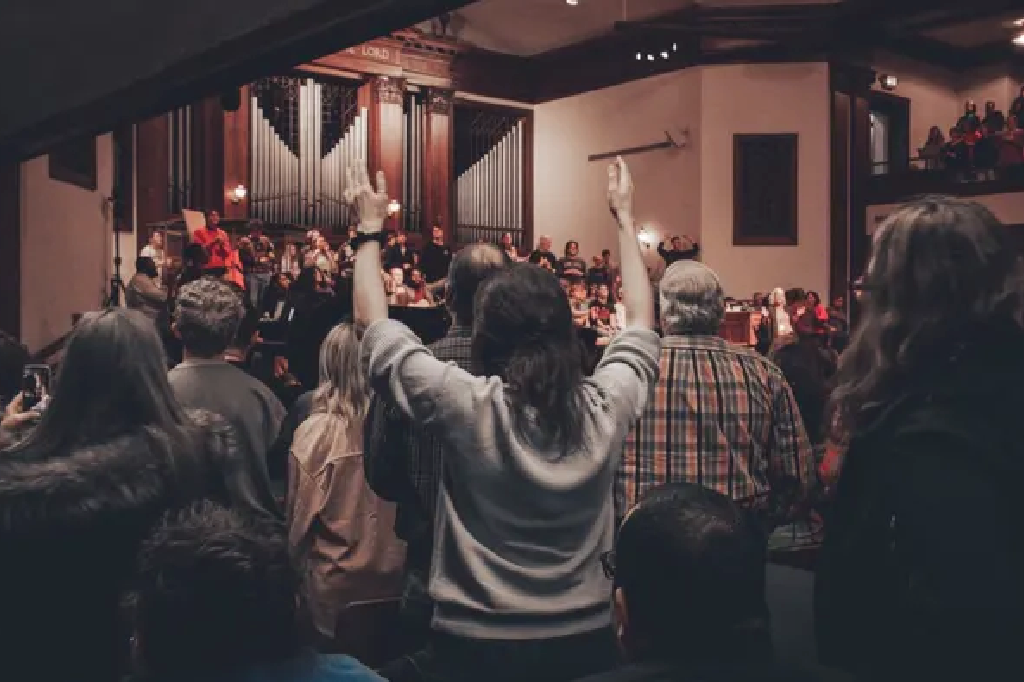I cannot remember a time when our nation has felt so splintered, angry, and adversarial.
Blame for why we find ourselves in the condition we are in is in plentiful supply. Nearly any reason can be built into a powerful construct to prove who is the “bad guy.” Whether disproportionate wealth distribution, immigration policy, trade agreements, race discrimination, elimination of manufacturing and energy jobs, or any other number of solid, well-reasoned arguments are to blame, the fact remains that much of the nation feels they have been left out of the American dream they were promised.
Three underlying realities may offer us some insight into our current situation and help us develop a healthy and productive dialogue. These realities may not directly impact each of us equally, but collectively they are a powerful mix of currents flowing beneath the surface threatening to pull us all under.
In his recent essay “Our Miserable 21st Century,” Nicholas Eberstadt identifies the first two undercurrents as: an underreported economic catastrophe and a silent social pandemic. The third, how our technological reality threatens how we understand truth, is revealed in Jason Tanz’s recent article “Journalism Fights for Survival in the Post-Truth Era” in Wired magazine.
DEPRESSION: symptomatic of an underreported economic catastrophe
This should be America’s new gilded age. Yet, in a world increasingly controlled by knowledge and technology, we appear to be mismanaging our moment. Eberstadt points out that “21st–century America has somehow managed to produce markedly more wealth for its wealth holders even as it provided markedly less work for its workers.”
One of the major contributing factors to this nationwide depression is the false construct of the American dream. People are unhappy, unfulfilled, and they’re looking for a scapegoat.
Unemployment damages the individual, not because of economic deprivation, but primarily because it undermines self-respect. Work is often an extension of personality, achievement, or one of the ways a person defines him or herself and measures worth. Without work, a person begins to feel empty, hollow, and worthless. Such feelings demand satisfaction—whether it is through finding meaning and purpose, often expressed in a person’s work, or in its absence, a way to numb the gnawing feeling of being and doing less than.

DEPENDENCY: our newest silent social pandemic
This economic meltdown, among a segment of the population—white middle-class American men, has produced a silent pandemic of drug addiction that affects many families in America.
Disability checks and means-tested benefits cannot support a lavish lifestyle. However, they can offer a permanent alternative to paid employment, and for growing numbers of American men, they do.
This powerful cocktail of job loss and drug dependency has forced a whole segment of Americans into government dependency
DISSONANCE: the technological reality threatening how we understand truth
The definition of dissonance is: tension or clash resulting from the combination of two disharmonious or unsuitable elements. A disconnect with reality around almost all of these issues has created in Americans a misunderstanding of what is true and what is not. We are a polarized culture propagated by a lack of common truth. Tanz proposes that the way we assimilate and understand truth has been completely eroded by the ubiquity of information that the internet and social media has provided to us. “In a post-fact era of fake news and filter bubbles, in which audiences cherry-pick the information and sources that match their own biases and dismiss the rest, the news media seems to have lost its power to shape public opinion.” The algorithms that the social media gods have assigned to each of us have customized a steady diet of our own assumptions, reinforced by ‘friends’ that, for the most part, agree with us.
We have descended into a confusing dissonance fed by a technological machine that, instead of challenging our assumptions and forcing us to the middle, feeds our differences and pushes us further away from collective values and beliefs.
We have gone from a business model that manufactures consent to one that manufactures dissent—a system that pumps up conflict and outrage rather than watering it down.
The combination of these three realities has propagated a fear and anger birthed out of powerlessness, loss, and confusion. Instead of stepping into this reality with faith, hope, and love, the Church has been hijacked by culture, and we find ourselves as divided as the world itself.
Instead of developing a prophetic counter-cultural response, we are bending the Gospel to substantiate the political, cultural, and social narratives that the spirit of the age has served up to us. Christians that tended to lean towards either a progressive or conservative strategic narrative are increasingly becoming more entrenched in those ideologies, rather than seeking liberation from the caustic, angry, and fear-filled expressions of these movements.
The Body of Christ needs to be the shining example of fulfillment and satisfaction because we know our true purpose and calling.
Philippians 3:18-21 (NIV)
Many live as enemies of the cross of Christ. Their end is destruction, their god is their belly, and their glory is in their shame. Their minds are set on earthly things. But our citizenship is in heaven, and we eagerly await a Savior from there, the Lord Jesus Christ, who, by the power that enables Him to subject all things to Himself, will transform our lowly bodies to be like His glorious body.
The Church should be a beacon of light in the midst of the darkness America is currently experiencing. As citizens of Heaven we have a mission to be salt and light and to proclaim the truth, hope, and love freely available in Christ here and now.
[Tweet “The Church should be a beacon of light in the midst of the darkness America is currently experiencing.”]
The Church needs to initiate healthy dialogue around these issues. We can start by addressing the theological need, how the Gospel speaks directly to each underlying problem, and highlight virtues the Church should aim to embody as we work against these currents.
Depression
- Theological Need: We need a theology of wealth, work, and vocation that appropriately grounds our everyday actions in a deeper narrative about what it means to be truly human insofar as we bear God’s image for the world.
- The Good News: Christ has made us a royal priesthood. Jesus gives us the best reason to seek work, work effectively, and welcome others to work alongside us: the Kingdom of God is here and it’s growing.
- The Church’s Virtue: Faith. Not mere belief in simple propositional statements, but firm conviction that allows one to take the stage and participate in the drama of scripture.
Dependency
- Theological Need: We need a theology of freedom that subverts our (slavish) obsession with autonomy and dares to argue that human freedom is often found in humble service and self-denial.
- The Good News: Christ has rescued the world from its bondage to everything that serves death. This includes the idolatry of idleness (“idle-atry”?) and our addiction to things that give us the illusion of control over our pain and loneliness.
- The Church’s Virtue: Hope. Not the cliché “it’ll get better” or “tomorrow is a new day” wishful thinking, but a deep inarticulate groaning birthed by the Spirit that trusts in a God who brings light into darkness, healing through suffering, and life out of death.
Dissonance
- Theological Need: We need a theology of truth and disagreement that appropriately balances two secondary theological convictions: (1) the confessional nature of our faith and (2) our own creaturely limitations. This will allow us to adequately note both our commitment to truth (with its proclamation) and our practice of intellectual virtues like humility, open-mindedness, and a willingness to be corrected.
- The Good News: Christ has reconciled the world to God, tearing down walls of hostility and alienation, and he has given us the ministry of reconciliation.
- The Church’s Virtue: Love. Not cheap sentimentality or cut-rate tolerance but a radical commitment to the flourishing of others that is characterized by patience, kindness, and humility, keeping no record of wrongs and delighting in the truth (1 Cor 13.4-7).
For the individual:
Perhaps healing a broken culture is not within the realm of the American Church. Perhaps most telling will be the generational divide these issues create. Older Christians, trying to maintain the order of a bygone America, will ally with any actor that resonates with their agenda. Meanwhile, younger Christians, trying to apply their faith to the new realities in a meaningful way, abandon orthodoxy for the sake of relevancy.
The last words of the Old Testament are more convicting than ever:
“He will turn the hearts of the parents to their children, and the hearts of the children to their parents; or else I will come and strike the land with total destruction.” Malachi 4:6 (NIV)
We can hope—and begin a new redemptive process in our own homes and in the household of God. Galatians 6 (NIV) should challenge us.
“9 Let us not become weary in doing good, for at the proper time we will reap a harvest if we do not give up.” The apostle Paul reminds us that all of us are part of the problem itself, that it must begin with a humble acknowledgement. “3 If anyone thinks they are something when they are not, they deceive themselves. 4 Each one should test their own actions.”
It is out of this disposition of repentance that we as believers are allowed to join the Master in breaking the ever-escalating sins of anger, fear, and distrust. This cleansing attitude provides the means to bring healing: for us to speak truth in love and help those being brutalized by depression, dependency, and dissonance.
“10 Therefore, as we have opportunity, let us do good to all people, especially to those who belong to the family of believers.”
Let us begin to do the hard work of rediscovering the Gospel and applying it to the new realities of our age—to commit ourselves as agents of reconciliation, to never give in to the bitter discourse that sows seeds of disunity. To be individuals, families and communities that live up to the charge given us in 2 Corinthians 2:15 (NIV).
[Tweet “We have to do the hard work of rediscovering the Gospel and applying it to the new realities of our age.”]
“For we are to God the pleasing aroma of Christ among those who are being saved and those who are perishing.”



